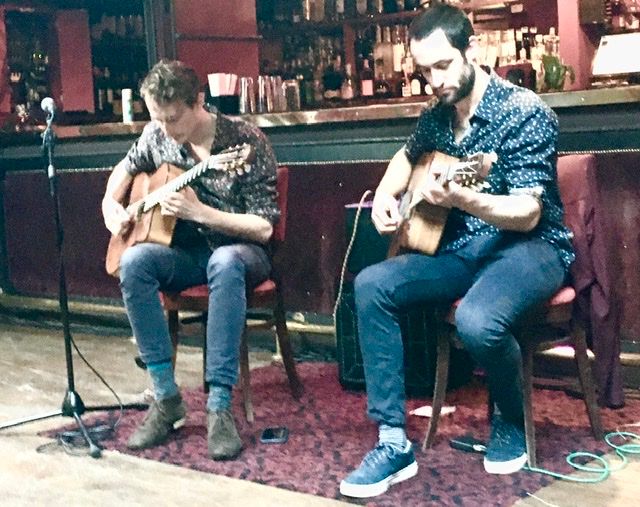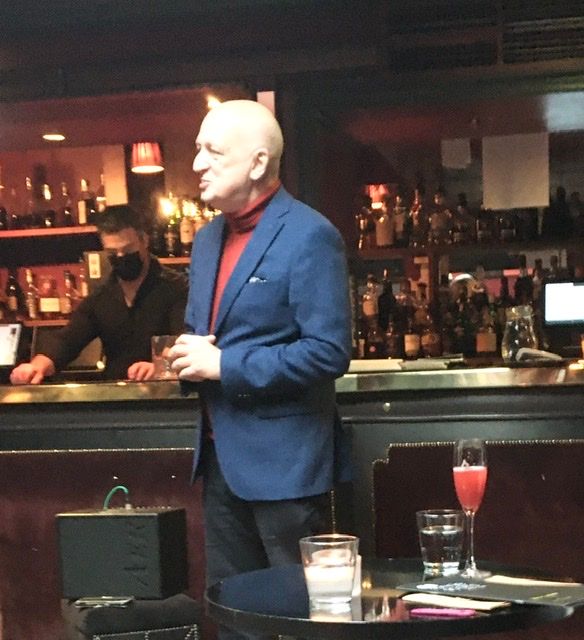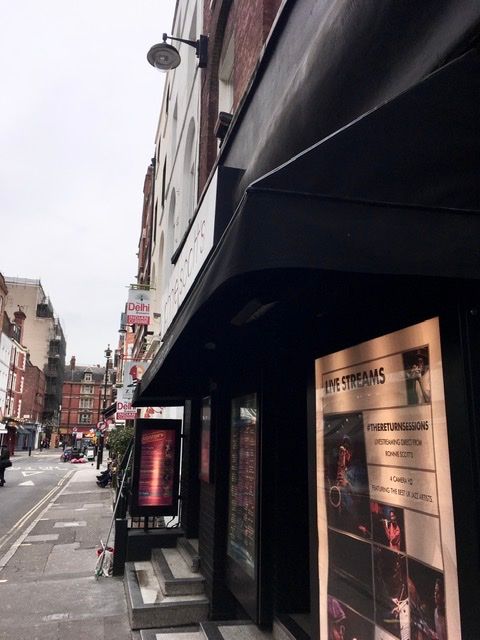
Introduced to the audience by booker Paul Pace from the Ronnie Scott's music team Django Reinhardt was the presiding inspiration for guitarists Harry Diplock and Jeremie Coullon upstairs on the first night back at Ronnie's after Lockdown. ''Last time we were here was November,'' said Diplock, natural light visible through the windows up above the space in front of their feet and even a few clouds on a rainy night in Soho. It was apt that 'Nuages' (French for clouds and an all-time Django classic) was one of the best moments of the whole mellow evening. Opening with 'I Love You' followed by 'Minor Swing' and ''jazz tune'' 'But Not For Me' sometimes Diplock took the lead, otherwise Coullon did, and there was an easy interplay between the two, a strolling motion and momentum building and building then releasing to tease out lightly amplified melody that joyfully rang out.
'Melodie au Crepuscule', or ''crappy old tune'' joked Diplock, the non-jury was out on that one, as he introduced the piece was an early highlight. 'Them There Eyes' he added was a ''campfire special'' when visiting Samois-sur-Seine in France for the annual Django festival jamming there with other players.
The ''cheesy'' 'Estate' (actually very uncheesy in the duo's delivery) classic standard 'Night and Day' and a piece Diplock told us was played on the Titanic the night the ship went down were also among the numbers played. 'Made in France' by Biréli Lagrène was another winning treatment later on as too was Diplock's own tune 'Sanguine.' SG

Thursday's Two for the Road named after the Herb Ellis and Joe Pass 1974 album of the same name revolves around duos, next week it's Dave Peabody and Tim Penn. Jim Mullen and Tom Remon follow. Diplock and Coullon return on 8 July. Harry Diplock, top left, and Jeremie Coullon. Paul Pace, above. Photos: marlbank
Tags:
